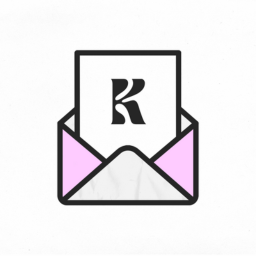OpenAI plans to launch an AI-powered browser to challenge Google Chrome
The browser may feature a chat interface and built-in AI agent integrations

Get Smarter at Marketing
OpenAI is reportedly close to launching an AI-powered web browser that could shift how users interact with the web, according to Reuters. Three people familiar with the matter told Reuters that the browser is expected to roll out in the coming weeks and will include a built-in chat interface and AI agent integrations. The aim is to give users a way to navigate the web beyond traditional link-based browsing.
AI agents may complete user tasks within the browser
According to the report, OpenAI’s browser will have support for AI agents that can help users complete tasks directly within the browser. The browser will have the ability to integrate OpenAI’s agent products, such as Operator, into the browsing experience. This means the browser could go beyond answering questions and do things for the user, like finding hotels, submitting forms, or comparing prices.
This isn’t the first time OpenAI’s browser ambitions have surfaced. Back in November, reports indicated the company was already exploring browser development integrated with ChatGPT. Those early plans also included discussions with companies like Redfin, Eventbrite, Conde Nast, and Priceline to explore partnerships around its search product. Now, it appears the plans are moving into execution.
Why OpenAI might be choosing to build its browser
OpenAI’s decision is to build a full browser instead of adding functionality to existing ones like Chrome or Safari. This is because the company wants direct access and control over user data. Currently, user data is largely controlled by browser players like Google Chrome.
One of the sources cited in the report said OpenAI wanted to avoid the limitations of working inside someone else’s ecosystem. OpenAI could collect browsing habits, search queries, and interaction patterns directly, without relying on third-party agreements.
With its own browser, OpenAI can decide what it collects, how the experience works, and how deeply AI tools are embedded in everyday use.
The startup is entering a crowded and competitive browser market
If OpenAI follows through with a browser, it will be entering one of the most competitive markets. Google Chrome still holds about 63% of the global market share, making it the clear leader. Google's success is heavily tied to Chrome and its search engine. A browser from OpenAI could directly challenge this stronghold.
If a significant portion of ChatGPT's 400 million weekly active users adopt OpenAI's browser, it could divert traffic and data away from Google's ecosystem, potentially impacting its ad revenue. The startup could bring ads to ChatGPT soon to meet up with the rising cost of managing the AI chatbot. However, CEO Sam Altman have warned that adjusting chatbot responses based on ad bids would be a “trust-destroying moment.”
Other browsers include Apple Safari, Microsoft Edge, and newer entries like Opera’s Neon and Perplexity’s Comet, which launched on Wednesday and are also aiming for a place in search. Perplexity’s Comet, for instance, is another AI-first browser. The company claims Comet is designed to rethink how users find and interact with content online. It combines web browsing with an AI assistant that can summarize content, carry out actions, and streamline tasks like comparing products or booking tickets.
These recent launches suggest growing momentum behind AI-enhanced browsing experiences, but the challenge ahead is steep.
However, Google’s browser dominance is currently under legal scrutiny in the U.S. The Department of Justice has demanded that Google sell off Chrome as part of an antitrust push. In an April hearing, an OpenAI executive said the company would be interested in buying Chrome if it were forced to be sold.
%20(1).png)
in the world of marketing:
